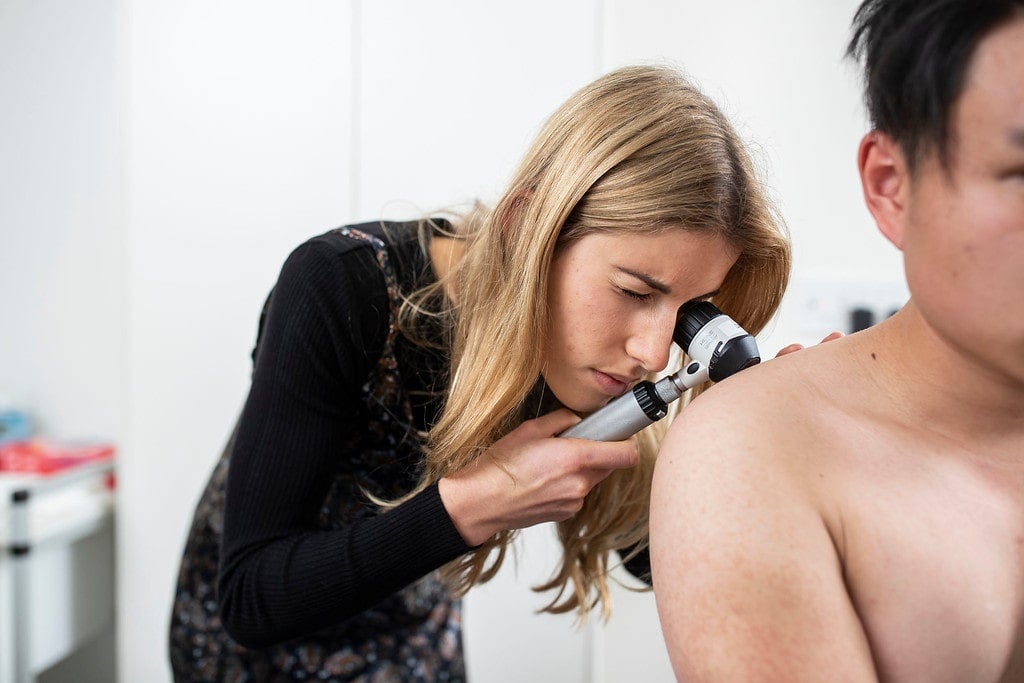Blog
Skin cancer: If in doubt, check it out
20 November 2012

Imagine if you could stand in front of the mirror and examine your brain, breast tissue or prostate, or if you were able to ask your partner to check your pancreas or kidneys.
You would be able to detect cancer and health problems at an early stage without the need for x-rays, CAT scans and MRI's. Treatment could be started early with a high rate of cure anticipated.
Unfortunately, such a simple self-check is impossible, except for one organ of the body. Which one you may ask? The largest organ of the body of course; your skin.
As a dermatologist, I have seen all too often the tragic outcome of failing to detect a melanoma at an early stage. A regular, simple five-minute skin check with the help of your partner could save your life.
Melanoma, the deadliest form of skin cancer, can occur at any age - even in children. Melanoma is most common however, in those older than 45 years of age and especially men. Particularly worrying is that in men aged 45 and over, the risk of dying from melanoma is more than twice that of women the same age.
While a melanoma may develop anywhere on the skin, up to 40% of melanomas in men tend to occur on the back, so I urge every man, with the help of a partner, to check your back and the rest of your skin regularly, for example at the beginning of spring, summer, autumn and winter.
If you see a mole or freckle changing in size, shape or colour, or a "sore" which just will not heal, go to your family doctor and ask: "Could this be a melanoma or other type of skin cancer?" Five minutes every three months is all it takes
The earlier the melanoma is detected the better the outlook, because the thicker the melanoma, the greater the risk of spread though blood vessels and lymphatics to other organs of the body.
The risk of spread of a melanoma less than 0.75mm thick is less than 5%, increasing to about a 5-10% risk of spread for melanomas between 0.75 and 1mm thick. At 2mm thickness the chance of spread becomes about 20-30%, at 3mm 30-40% and at 4mm 40-50%, so prevention or early detection are the keys to survival.
Start today. Look around. Get to know your skin. If in doubt, check it out.
Tags
